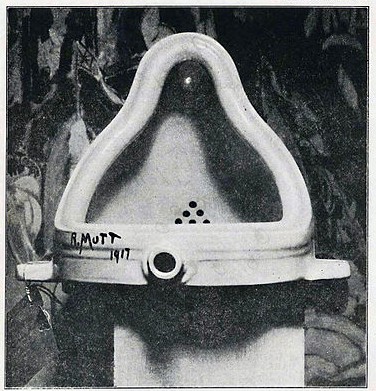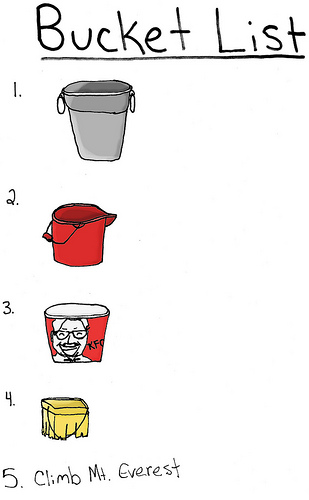A Taste of Philosophies to Come. Further Thoughts on Writing and Publishing.

 Earlier this afternoon Pablo D’Stair, as he is apt to do, asked some questions that made me evaluate my writing in way that I haven’t before. Not deeper, necessarily. Just different.
Earlier this afternoon Pablo D’Stair, as he is apt to do, asked some questions that made me evaluate my writing in way that I haven’t before. Not deeper, necessarily. Just different.
I won’t copy the questions and answers verbatim here—as I believe Pablo has something planned for the full discussion—but I don’t think he’ll mind if I mull over a few of the topics for a bit.
Literary and Genre
Do you think of what you do as “genre” writing and if so or if not, do you see a difference (and what is it) between writing termed genre and writing termed literary?
In common use “genre” equates fiction created to entertain while “literary” refers to fiction created to enlighten. Here’s where the dispute originates, in that the differences are with intent rather than the end product. When something cannot be judged 100% objectively, there’s going to be disagreement. Hell, that’s why conceptual art, you know, Duchamp’s R. Mutt urinal and such, is so polarizing. Some people would call The Fountain trash. Others would call it art. The fact is, it’s both. Genre and literary are not mutually exclusive.
Genre refers to tangible measures like content, setting, plot, etc. Literary refers to the way in which those tangibles are executed. For example, a novel that people of the first distinction might call literary, Freedom by Jonathan Franzen, is most definitely literary. But, like everything, it has a genre as well: domestic fiction or environmental fiction (or any number of other categories). Following that logic, two books could share genre, but not necessarily both be literary. Stephen King’s It is horror and so is Mark Z. Danielwski’s House of Leaves, but only the latter could be called literary.
Expression and Intention
Are you a writer who seeks to express yourself, personally and primarily or a writer who seeks to kind of “set down something for other people” pulled from a personal place or not?
I’m never one to simply express myself. Rather, I use writing to mull over my own philosophies, to textualize them so that I may have a physical referent for any future questions regarding those philosophies, an artifact of sorts to say, “This is what I believe about this subject.” Also, I love to hearing the way great word-combinations sound, especially when used to describe grotesque situations. So, it’s a mix of giving permanence to my own philosophies and seeing beautiful words. Oddly enough, though, I don’t care for poetry, which would logically seem to satisfy both of those goals.
Legacy Publication and Self-Publication
Considering the landscape of “writing” and “publishing” these days, and considering the micro-press level, do you see any specific reason for “publishers” to exist?
The way I see it, there are three components of success—what most people would define as success—when it comes to being an author: readership, sales, and prolificacy. I think the lure of the publisher is the potential to grow all three areas with perceived ease. But what a new generation of writers is beginning to understand is that the writers themselves can, with equal ease (though not to imply that either way is truly easy) accomplish the readership and prolificacy aims without the aid of a publisher. Sales, too, but that one is still difficult, at least to the level that it takes to be a full-time author. I think it’s up to the publisher to adapt. A publisher needs to understand that authors can gain readership and can write plenty. A publisher needs to then reallocate resources away from these two areas and bring more attention to sales. Meaning, promotion, PR, events, etc.
Ultimately, the tendency for an author to favor legacy publishers over self-publishing implies a certain degree of ego. Readers, for the most part, don’t care how a book gets published. In fact, most readers probably don’t know the publishers of even their favorite books. Among writers, for one to claim one of the Big Six legacy publishers as their own means that the writer had navigated a difficult series of desks and wallets to have the book published. The end physical product is the same as a self-published author, but the implied journey is much different. And I think the perception is valid. It’s about winning something more than readers.
Getting a book published with a legacy publisher is more difficult than self-publishing or publishing with a small independent publisher. It’s that simple. But again, as far as the general reader is concerned, the publisher is irrelevant. Though, I would love to live in time when readers were passionate about publishers the way, say, music lovers tend to be about independent record labels.
Did Crime Come to You or Did You Go to Crime?
You write what could be considered crime fiction, noir fiction. Do you approach it with crime fiction tropes in mind are you drawn to an extremely general idea?
Drawn to a general idea, for sure. In fact, only recently did I sit down to consciously write a crime story (for a forthcoming collection of novellas). I think the allure of crime for me—whether as a defined genre, or as a mashup of thematically similar tropes—is its inherent proximity to morality, which in turn speaks to the importance of characters. For me, writing is all about exploring my own philosophies through the lens of grotesque characters and situations. Crime lets me do that without compromise.
I’m not against trying to “force” myself into a genre, though. I like the artificial construct of hard genre. I like a challenge. Hell, that’s what my writing philosophy is built around; challenging myself to confront personal philosophies.
Risks and Risk Aversion
Do you feel that the authors you admire take risks, and if so what do you mean by “risks”? In my experience, crime/noir (and horror) writers tend to spend a lot of time going on about “getting in touch with their dark side” or “going to places where they are uncomfortable” but I never really get the feeling they do that.
I don’t buy the risks thing. Or, said better, I don’t care if a writer is taking risks—whether consciously or sub-. To me, a risk is when a writer does something that could potentially cripple something they’ve, until the moment of the risk, spent their writing lives building. So, for Stephen King to write a bodice ripper would be risky. For Pynchon to do a reality TV show would be risky. Neither of these would impress me. I love that Stephen King writes horror (though, for the record, I’m not a fan). I love that Pynchon is a recluse. These traits are important to the general perception of these authors and their work. A risk would be compromising those things.
I think authors themselves don’t generally see themselves as risk-takers. They write what interests them. However, talking about being a risk taker adds to the sexiness of being an author that readers want (in the way that any public persona tends to dramatize their role for the sake of success). Those writers who say they are “getting in touch with their dark side” or “going to places where they are uncomfortable” aren’t describing truth; they are describing fiction. And isn’t fiction what they do best? Or, perhaps, they are simply using grandiose terminology for the act of mulling over personal philosophies, as a familiar author once said (me, above).



Excellent post, as always. I awarded you the Most Inspiring Blogger Award:https://nascentnovelist.wordpress.com/2012/02/08/blog-awards/
Keep up the good work!
Awww, thank you. That means a lot. I try.